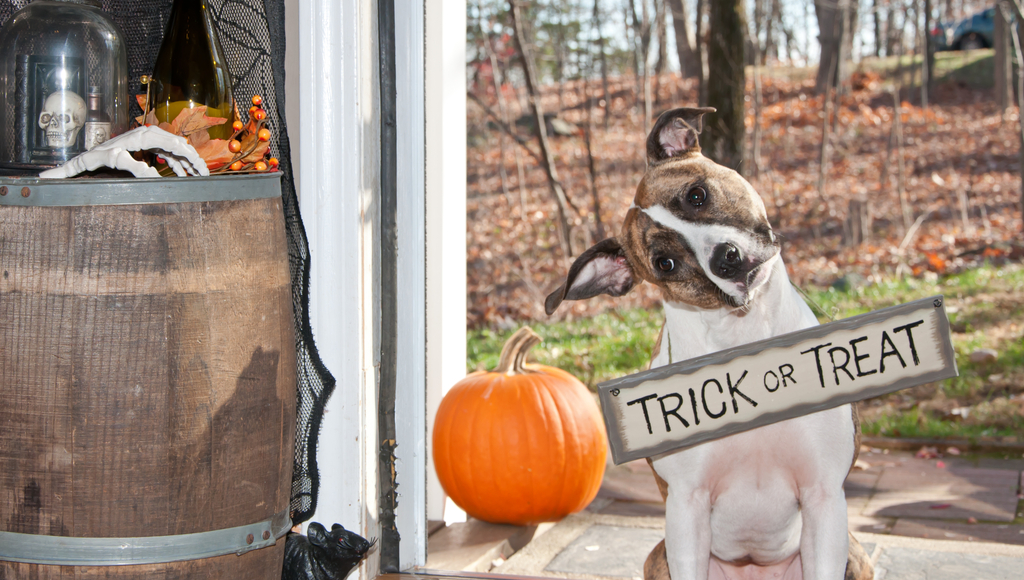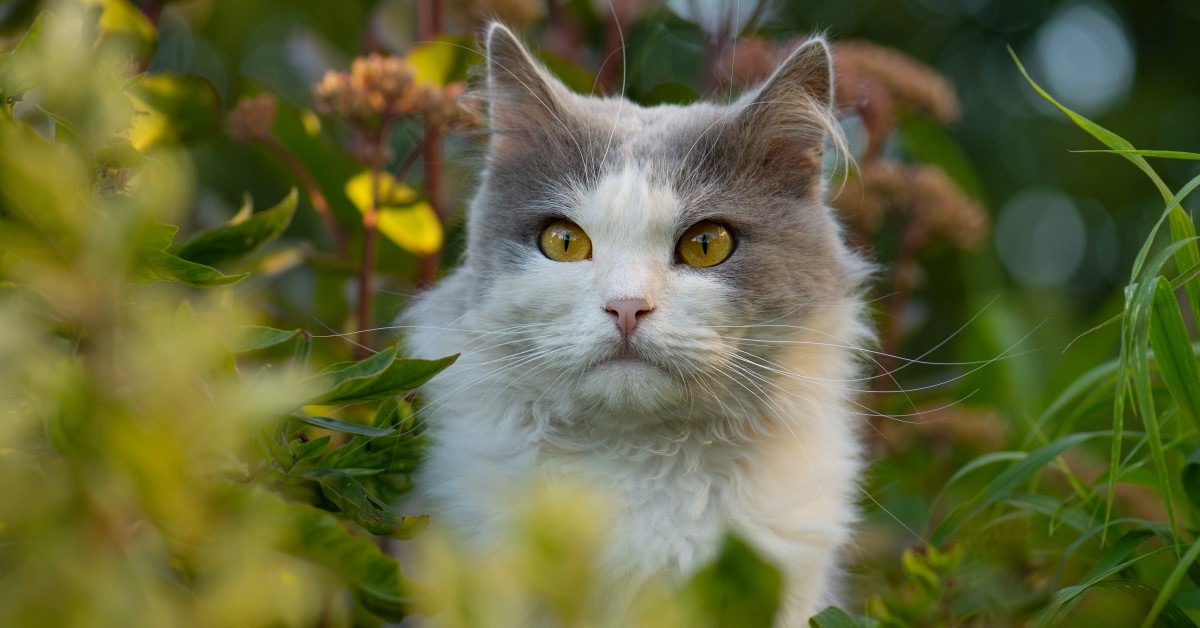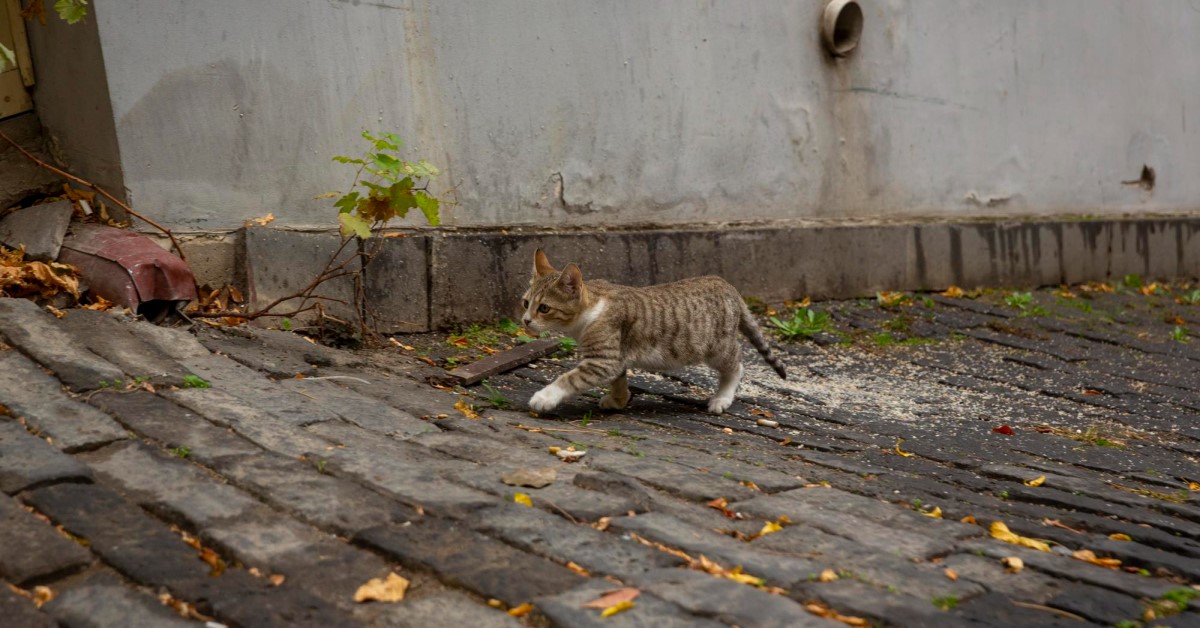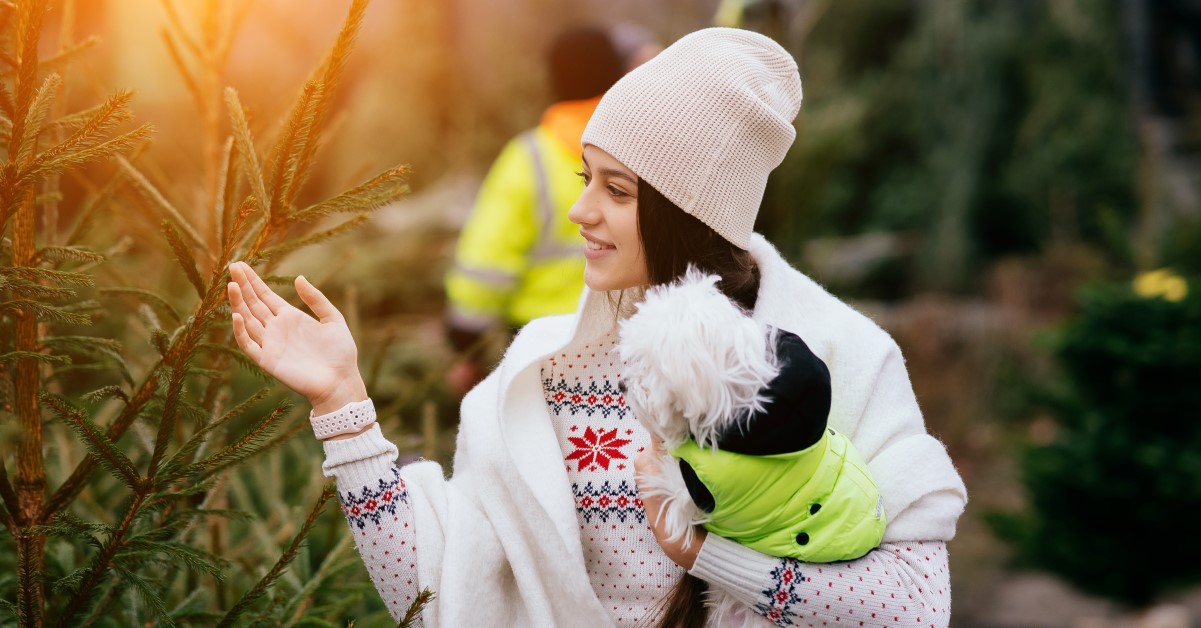Pets and Halloween Safety
Halloween can be a fun and exciting holiday for both humans and pets to enjoy safely with careful planning and forethought.

No matter which way you look at it, Halloween is a fun and exciting holiday. It's a chance for people to dress up, suspend belief, and partake in some extra sugary calories. While it is certainly possible to have an enjoyable holiday with your pets, it is important to remember to keep your pets safe through the holiday. It may not seem like a dangerous day for humans, but Halloween can present several underlying dangers for your furry friend. Luckily, with close supervision and some special accommodations, Halloween can be a safe and enjoyable holiday for both you and your pet.
Pet Costumes
Nothing looks more adorable than a dog dressed up as your favorite movie character, or a cat rocking a good witch's hat. But, before dressing your pet up for the holiday be sure to think of their safety first. Avoid any costumes that may be too tight around the neck because these could restrict your pet’s airways. Make sure that the costume fits well and doesn't limit your pet's range of motion. You never want your pet to become overheated, so make sure the costume is made of light and breathable material. Lastly, make sure that your pet's ID tags are visible and legible.
Before putting your pet in a Halloween costume, you need to make sure that your pet is comfortable with wearing a costume. All too often pet owners put their pets into costumes when the pet is less than thrilled. This can lead to stress and anxiety in your pet, even if your pet is only wearing the costume for a matter of hours. If your pet exhibits any signs of distress while wearing a Halloween costume, make sure you take the costume off and forego the adorable holiday photos.
Candy Dangers
While there are plenty of scary costumes and sounds that go "bump!" in the night, really Halloween is about one thing; the candy. As much as humans enjoy partaking in additional sweets, Halloween candy can be very dangerous, and potentially deadly, for your pet.
Chocolate
Although ingested chocolate is rarely deadly for your pet (cats and dogs included), it can make them extremely sick. Chocolate is a common Halloween candy that can unfortunately pose some big health risks for pets. Chocolate contains caffeine and theobromine. Your pet's body is not able to metabolize these chemicals so it makes the chemical side effects magnified in pets. These side effects can include increased heart rate, upset stomach, diarrhea, vomiting, seizures, and difficulty walking and moving.
It is important to keep any candy far out of reach of your pets. Keep chocolate locked away in a cabinet, that even the best counter surfers will not be able to reach. If your pet does ingest chocolate, it is important to know how to treat your pet in the event of illness. If your pet has ingested chocolate, the best course of action is to closely monitor your pet and watch for any signs of distress. Contact your local veterinarian right away if you believe your pet may be suffering any symptoms from ingesting chocolate.
Artificial Sugars
While chocolate is usually on a pet owner's radar as a potential danger, many pet owners do not understand how dangerous artificial sugars and sweeteners can be for dogs. The artificial sweetener called Xylitol can be very dangerous for your dog. This sweetener is safe for humans and is often found in chewing gum and mints. These favorites for Halloween candy are often given out as treats. If ingested, Xylitol can cause your pet's body to release a tremendous amount of insulin. Not only can this make your pet sick, but it can eventually lead to kidney and liver damage if left untreated. Signs of poisoning can include vomiting and diarrhea, as well as muscle weakness and lack of coordination.
Be sure to check the labels of sugary foods and candies if your pet has ingested them. While many artificial sweeteners can be dangerous for your pet, not all artificial sugars are bad. Just like with chocolate, it is important to keep candy locked away and safely secured from your pet. Understand what signs to look for if your pet has ingested artificial sweetener, and have a plan in place to get your pet to the emergency vet if conditions worsen.
Noise and Stress
Trick or Treat can bring a large amount of traffic to your home, between kids looking for candy and the occasional Halloween party. With children ringing the doorbell repeatedly and a great deal of chatter, Halloween night can be pretty noisy. For a cat or dog not accustomed to several people visiting the house, this can be quite traumatic. Make sure you consider your pet, and his or her anxiety level, throughout the night.
If you have a pet that is scared of noises and strangers be sure to set up a safe space within the home where your pet can feel comfortable. This safe space can be a quiet, dark room, where your pet can be surrounded by comforting items like bedding or a favorite toy. Sometimes it can help to put on the television or radio to drown out unfamiliar sounds and voices in the home. If your pet has extreme anxiety, consider moving your Trick or Treat candy station to the end of a driveway to prevent children from coming to the home and ringing a loud doorbell.
By all means, Halloween should be a fun and joyous holiday enjoyed by people of all ages. If you are a pet owner though, it is important to understand and appreciate the dangers this festive holiday can bring. Between loud and unfamiliar noises and potentially dangerous candy, Halloween can present a slew of concerns for the conscientious pet owner. But, with careful monitoring and diligent care, Halloween can be both safe and enjoyable for humans and pets.
Ready to start saving money on pet wellness care?
Then take a look at Mint Wellness, the pet wellness plan that provides fast reimbursement on routine pet care. Save on vaccinations, wellness exams, preventatives, dental, and more!
Learn More


